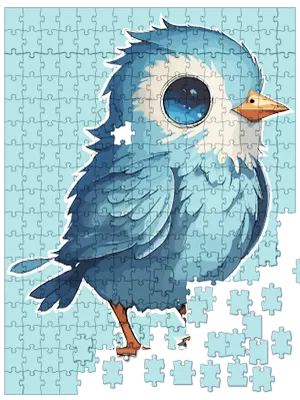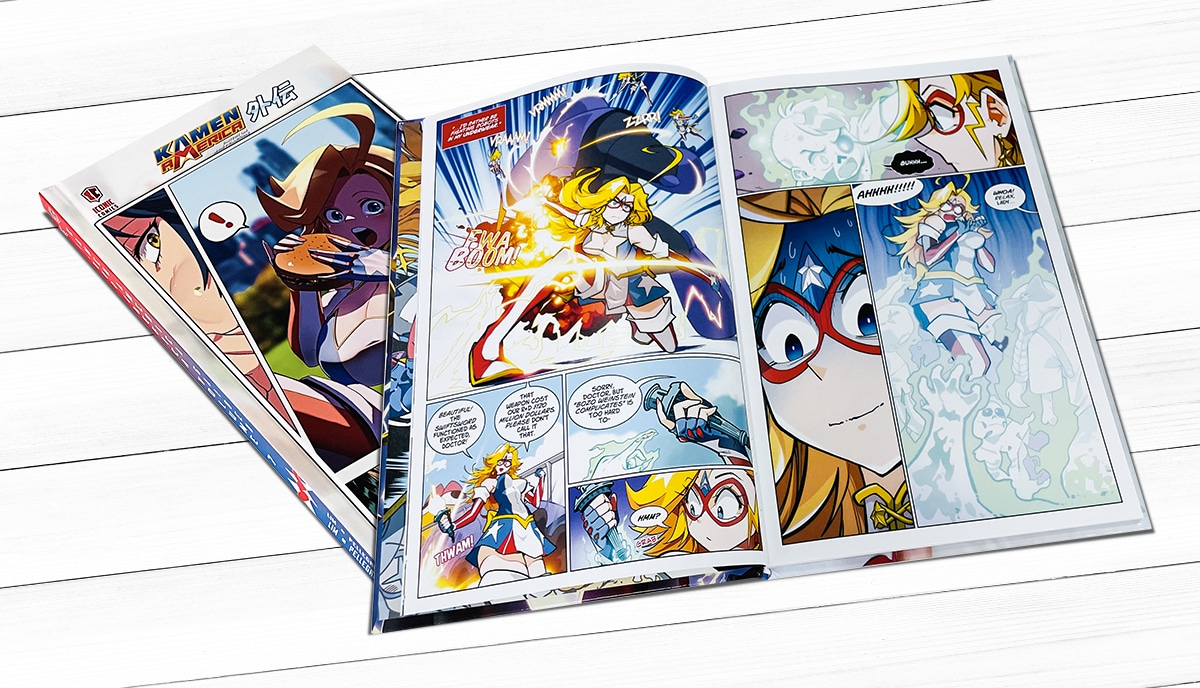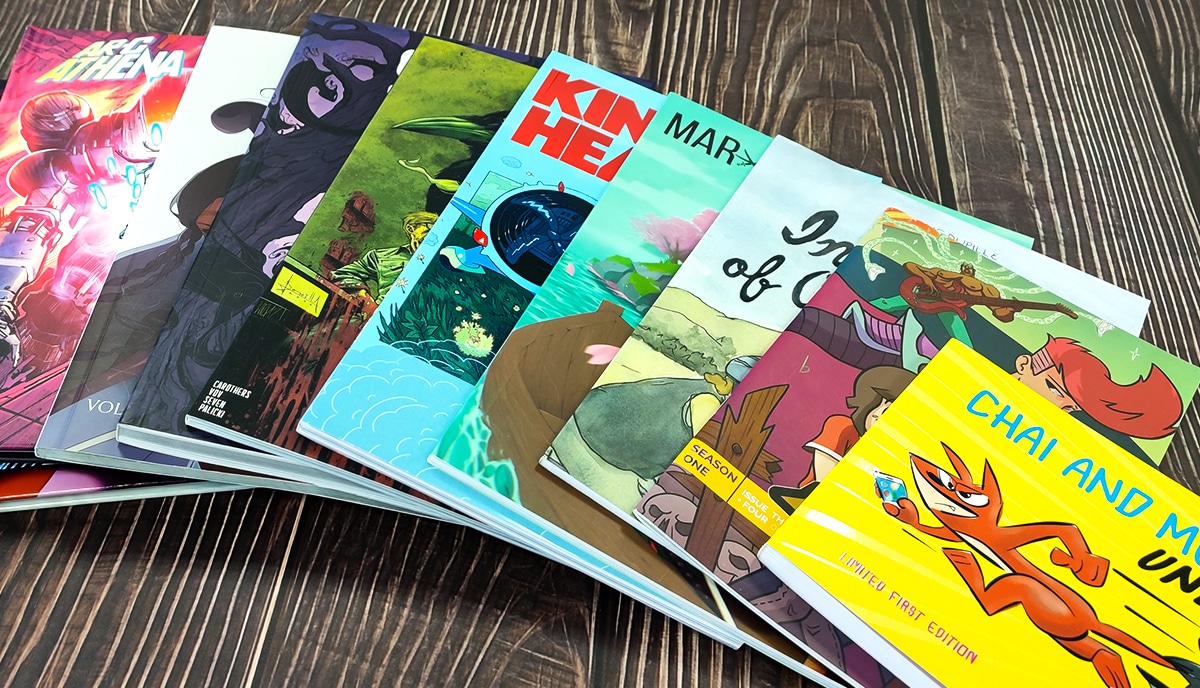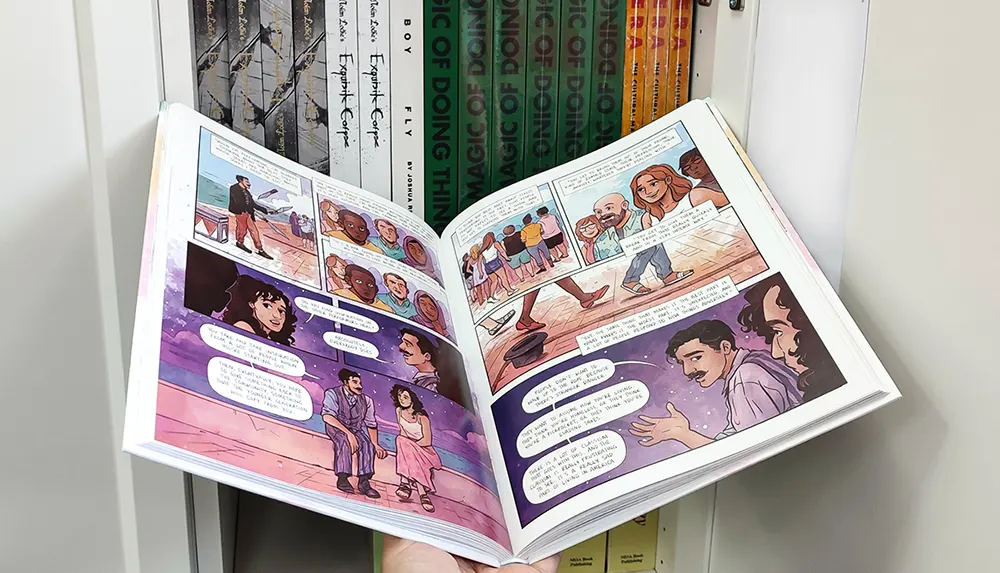The best of Neil Gaiman's advice for comic book writers from around the web
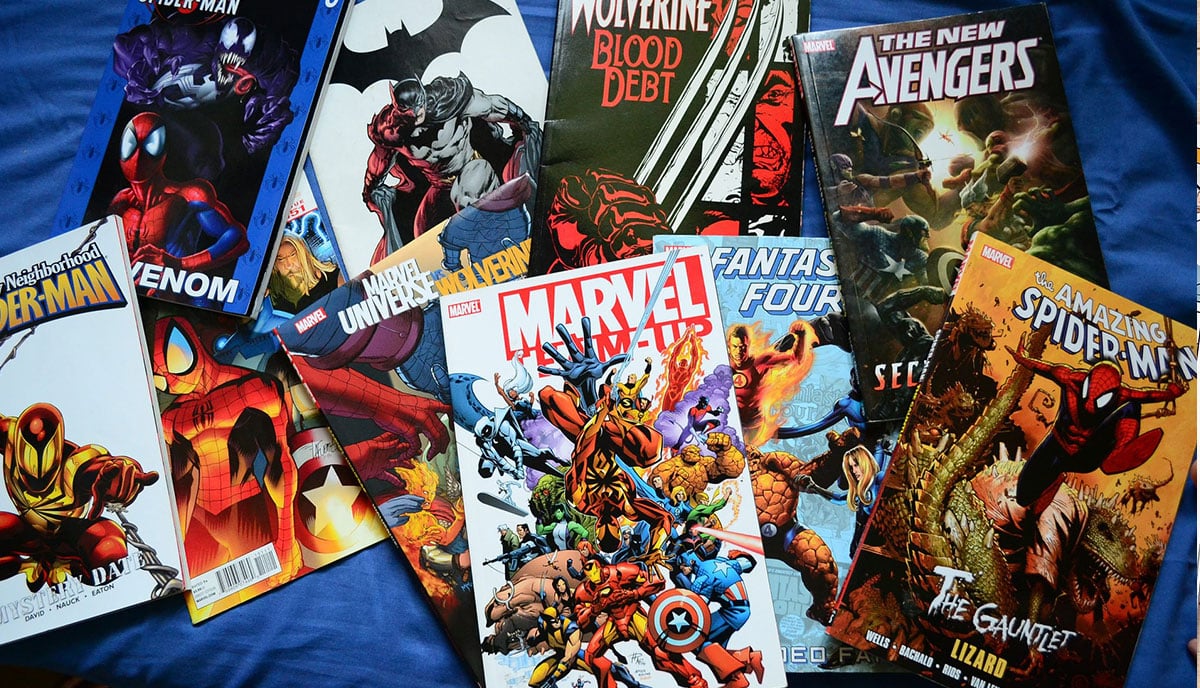
Neil Gaiman, the acclaimed British author, screenwriter, and producer, is known for his diverse body of work, ranging from comics and children's books to novels and television scripts. His imaginative storytelling has captivated audiences of all ages, earning him many awards and accolades. Any aspiring comic book creator can always learn something useful by listening to the advice of the experienced experts who have gone before them. It's in that spirit that we're going to explore some of Gaiman's best advice for aspiring comic book writers and examine the key principles that have shaped his successful career.
Fictive truth and storytelling
We'd better start with an aspect of this topic which is central to Neil Gaiman's vision of what he does, why, and how. He defines himself as a “storyteller” rather than a novelist, or a comic creator, or a scriptwriter, or a movie producer per se. Gaiman believes that fiction has the unique ability to convey truths through lies. He has called storytelling—whatever the format, including comics and graphic novels—as “lying in the service of truth”. He emphasizes the importance of using memorable lies, fictional stories, and characters to communicate deeper truths about the world. For example, in Neverwhere, published by DC Comics, Gaiman uses the concept of a hidden world beneath London to explore themes of homelessness and social inequality. By employing fantasy as a vehicle for social commentary, Gaiman encourages comic book creators to tap into the power of storytelling to convey meaningful messages.
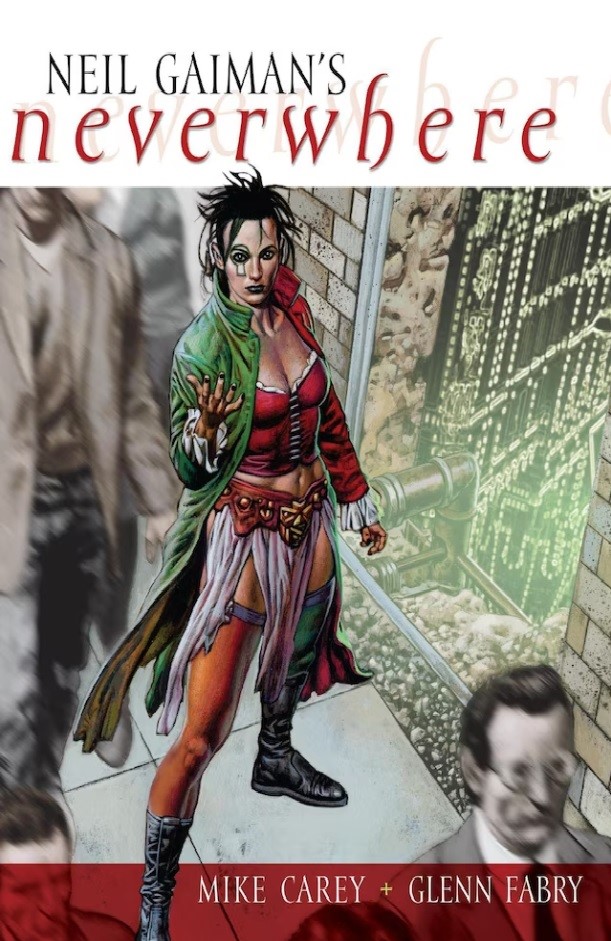
Now, that doesn't mean that your comic has to have a hidden agenda or convey a specific social or cultural message. What it means is that your storytelling will be enriched and more likely to make a powerful emotional connection with your readers, if you write from a deeper, less superficial level that embraces the struggles and aspirations, the ambitions and the disappointments, of the human condition. It's this essential truth about the human experience to which Gaiman refers. Often, that will mean tapping into and expressing not only your personal perspective on such issues but also extending your imagination in empathy to encompass the life conditions and experiences of other people not at all like yourself. Even if your characters and story world are completely fantastical, they will resonate with readers only if at their heart they communicate these fundamental truths.
Cultivate your imagination
Everybody is born with imagination. As children we were often lost in our own invented worlds, pretending to be characters from books, movies, TV shows, or just things we've completely made up. But imagination needs to be cultivated if you want to use it to develop and design effective and fascinating comic books. According to Gaiman, imagination is like a muscle that needs exercise. Writers must actively engage their imagination to keep it strong and vibrant.
In the service of this constant exercising of the imagination, he advocates for the importance of reading extensively, as it helps comic book writers expand their creative horizons and develop their storytelling skills. Gaiman also emphasizes the correlation between reading and writing, stating that reading is to the mind what exercise is to the body. By immersing oneself in a wide range of literature, writers can fuel their imagination and enhance their writing abilities.
Embracing emotional truth
Gaiman believes that emotional truth holds more significance than strict adherence to facts. He suggests stories can convey profound truths even if they are technically inaccurate. By focusing on emotional authenticity, writers can create narratives that resonate with readers on a deep, personal level. Gaiman's approach exemplifies the power of storytelling to transcend factual accuracy and evoke genuine emotions in readers. In his masterclass, he teaches that, “You're telling a reader something that you hope will stay with them, something honest, something important, something vital. But you're using lies.” What he means by lies in this context is that it's fiction, it's a story, something made up about made up people in a made up world. None of these things ever really happened and the people in the comic don't really exist. But they tell us something true, give us valuable information about life and what it means to be human. And as a comic book creator, you can only create those kinds of stories, with that deep level of emotional resonance, if you draw on your own honest experience.
Now, drawing on your own honest experience doesn't mean the facts of people and events in your personal biography. It means the feelings that you've experienced in your life, the meanings you've experienced in response to all your life's struggles and successes. That's what Neil Gaiman means by “emotional truth”. And he thinks that it's the foundation and heart of all good storytelling, including in comics.
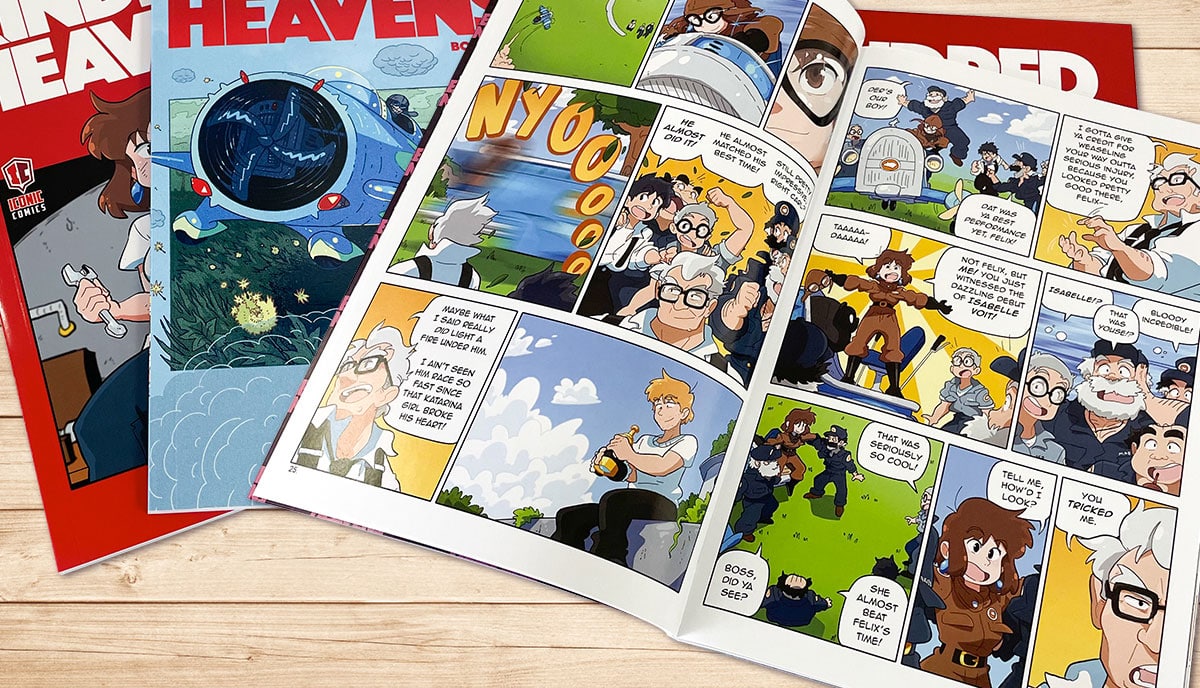
Keep going even when creating is tough
Gaiman acknowledges that starting out as a comic book writer can be challenging, but he also emphasizes that the journey doesn't get easier once you've achieved initial success. Each project presents its own set of obstacles, and writers must remain resilient and adaptable. Gaiman advises writers to be cautious of blindly trusting others in the industry and to approach each new endeavor with a discerning eye. By staying vigilant and maintaining a strong work ethic, comic book writers—and other creatives—can navigate the trials of their creative careers, keep working when things seem to go nowhere, and stay true to their personal vision.
Gaiman also applies this to when you're working on a comic and you suddenly find that you're stuck. That your characters aren't working out and the story doesn't seem exciting or engaging, and you can't think what should happen next. He says that this experience is common and never goes away, even when you are a successful comic book creator. Gaiman dispels the notion that writing is an effortless endeavor. He emphasizes that writing requires dedication, determination, and hard work. The process of transforming ideas into reality demands persistence and a willingness to put in the effort.
Gaiman's perspective serves as a reminder to aspiring writers that success is not achieved through magic but through sheer commitment and a strong work ethic. According to Neil Gaiman, this experience, which is often called “writer's block” is just part of the process and you need to work through it rather than give up. He suggests that maybe taking a break and then coming back to find out where the problem lies can be helpful, but in the end it just means that sometimes writing stories and creating comics can be hard work. No excuses!
See mistakes as opportunities for creative growth
One fact that sets professional—or at least, experienced—comic book creators aside from their amateur counterparts, is that they're not phased or freaked out when they make mistakes. They know they're going to happen; they expect them. And more than that, when they happen, rather than just trying to fix them, professional comic book creators examine why they happened and also take a fresh look to see if the “mistake” is really a mistake, after all, or just an unexpected opportunity.
Mistakes are an integral part of the creative process, according to Gaiman. He encourages writers to embrace the possibility of making mistakes, as they signify potential for growth and new avenues of creative exploration. In his Keynote Address to recent graduates of the University of Arts in Philadelphia, he said, “I hope you'll make mistakes. If you're making mistakes, it means you're out there doing something. And the mistakes in themselves can be useful.“
By taking risks and trying out new things, comic book writers and artists can push the boundaries of their craft and discover additional aspects of their storytelling abilities. Gaiman's perspective highlights the importance of learning from failures and using them as stepping stones toward improvement. In the address cited above, he reveals that the name “Coraline” –the title of his seminal comic book fantasy—arose because of his misspelling of “Caroline” in an email! So, embrace mistakes. They often hold the keys to hidden treasure.
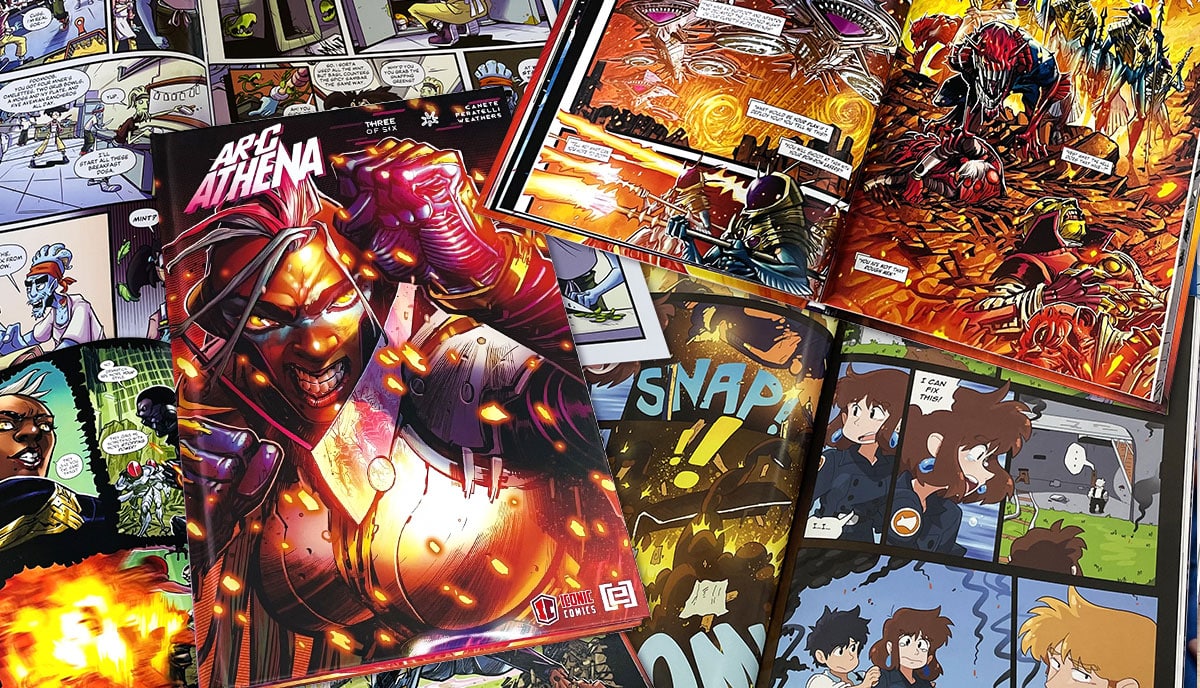
Disconnect to reconnect
A few years ago, Neil Gaiman famously took a long sabbatical from his online presence—abandoning Twitter, Facebook, other social media, and even his blog to take time out of the digital world. Along with authorities on productivity and creativity like Cal Newport, author of “Deep Work” and “Digital Minimalism”, Gaiman emphasizes the value of disconnecting from the digital world to ignite creativity.
Taking breaks from technology and going off the grid allows writers to recharge their minds and find inspiration, to enhance focus, dive deep into imaginative work, rediscover the power of uninterrupted concentration, and produce more high-quality output in less time. Gaiman himself credits his time off the grid with sparking new ideas and helping him overcome creative blocks. By stepping away from distractions, writers can create the mental space needed for fresh ideas to emerge.
Tell the story only you can tell
Above all, Gaiman advises—both in his university address and on his blog—that comic book writers to remain true to their particular stories without trying to imitate someone else's success. He claims that the best way is always to write with honesty and authenticity. He believes that there are no strict rules in writing, except for telling the story as it needs to be told. Gaiman's approach encourages writers to trust their instincts and to prioritize the integrity of their narrative. By staying true to their unique voice and vision, comic writers and artists can create work that resonates with readers and stands the test of time.
Neil Gaiman's advice for comic book writers offers valuable insights into the creative process and the art of storytelling. From harnessing the power of fiction to embracing mistakes and staying true to your unique voice, Gaiman's principles can guide aspiring writers on their own creative journeys. By incorporating these lessons into your practice, you can navigate the challenges of the industry and create interesting narratives and artwork that captivate audiences worldwide. So, go forth and unleash your imagination, and as Gaiman himself famously said, “Make good art.“
Talk to us!
Whether you're just planning your comic book or you're preparing your completed files, we're always happy to hear from you either to chat about how we can help you realize your comic book project or to give you a personalized quote on printing. Get in touch. We can't wait to be part of your next comic book adventure!




